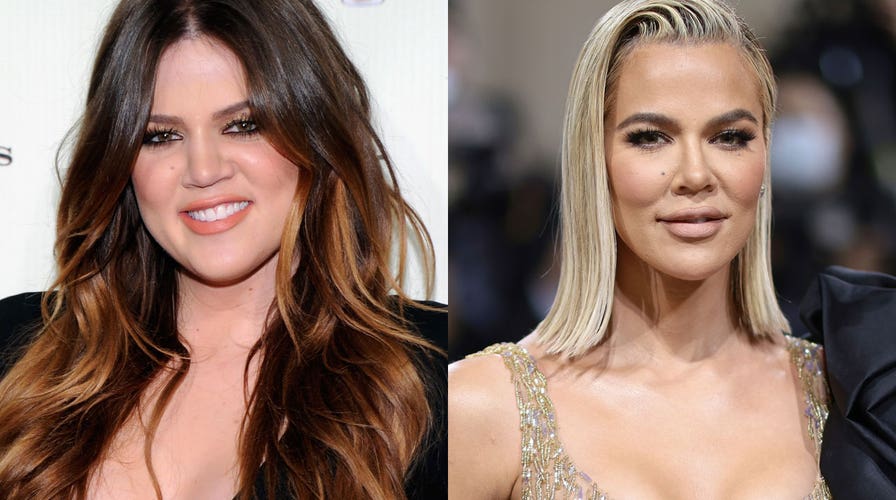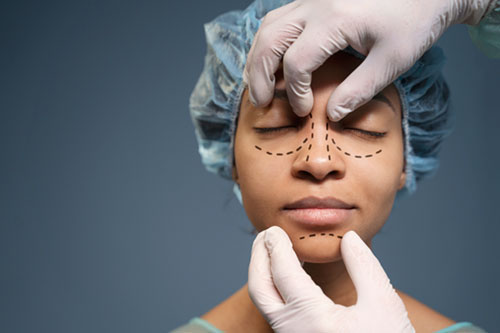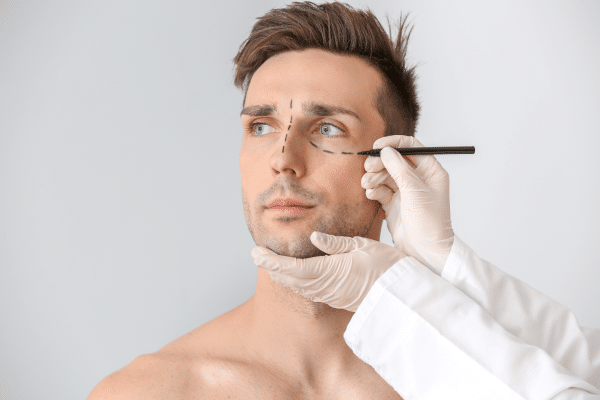Exploring the Mental and Social Factors That Drive People to Think About Plastic Surgery as a Way of Enhancement
The choice to go after cosmetic surgical procedure commonly expands beyond mere appearances, linking with social and psychological characteristics that merit comprehensive exam. Elements such as self-esteem, prevalent social elegance requirements, and the pervasive influence of social media assemble to shape individual motivations for surgical enhancement.
The Function of Self-worth
Self-confidence significantly affects an individual's decision to seek cosmetic surgical treatment. People with low self-confidence usually perceive themselves in a negative light, causing feelings of insufficiency concerning their physical appearance. This negative self-perception can drive them to look for surgical treatments as a method of enhancing their self-image. The desire for enhancement in one's look is regularly connected to a belief that such modifications will certainly raise their total self-worth and confidence.

Ultimately, the function of self-confidence in the decision-making process relating to plastic surgery highlights the intricate interplay in between body photo, individual fulfillment, and mental health. Understanding this partnership is vital for health care experts to make certain that individuals are making informed choices rooted in realistic assumptions and psychological health.
Societal Charm Criteria
Influenced by pervasive media portrayals and cultural stories, societal elegance requirements play a critical role in forming people' perceptions of their very own bodies. These criteria are commonly identified by an idyllic kind of beauty that emphasizes qualities such as slimness, proportion, and youthful vigor. As these suitables are bolstered through various networks, consisting of advertising, television, and film, individuals frequently internalize these messages, causing dissatisfaction with their natural appearance.
The implications of these societal standards extend beyond visual preferences; they can influence self-esteem, psychological wellness, and interpersonal relationships. People that view themselves as disappointing these criteria may experience feelings of inadequacy, triggering a need for plastic surgery as a way of attaining social authorization. This pursuit is frequently fueled by the belief that satisfying these perfects will enhance not just physical look but additionally social standing and individual satisfaction.

Impact of Social Media Site
The influence of social appeal standards is additional magnified by the increase of social media sites systems, where curated photos and idyllic representations of charm are ubiquitous. Individuals are frequently revealed to filtered and edited pictures, which often illustrate unattainable physical qualities. This exposure cultivates a culture of comparison, leading people to analyze their own appearance against these usually unrealistic benchmarks.
Social network influencers and stars regularly promote aesthetic treatments, sites stabilizing the concept that medical improvements are a feasible ways for achieving societal suitables (plastic surgery rancho cucamonga). The visibility of these enhancements can produce a perception that undergoing plastic surgery is a standard practice, thus influencing people to take into consideration similar treatments as a pathway to boosted self-confidence and social acceptance
In addition, the interactive nature of social media permits for immediate comments through likes and remarks, additionally enhancing the need to comply with preferred charm criteria. Such interactions can aggravate sensations of navigate to these guys insufficiency and drive individuals toward plastic surgery as a way of getting validation. Eventually, social media sites plays a critical duty fit perceptions of elegance, which significantly influences the decision-making procedures surrounding plastic surgery.

Social Perspectives on Appearance
Across numerous cultures, understandings of look are deeply rooted in historic, social, and financial contexts, shaping individuals' views on elegance and worth. In numerous cultures, look offers as a significant pen of identity, influencing social status, specialist possibilities, and personal relationships. For instance, in some societies, light skin is frequently connected with riches and benefit, while others might idealize darker complexion as symbols of strength and credibility.
Moreover, conventional charm criteria are commonly perpetuated through cultural narratives, media depictions, and household affects, causing varying ideals across various regions (plastic surgery rancho cucamonga). In Western cultures, the emphasis on youth and physical health and fitness usually drives people toward aesthetic enhancement, while in specific Eastern societies, more refined modifications straightened with typical looks may be liked
Globalization and the expansion of electronic media have further made complex these characteristics, producing a hybridization of charm ideals that goes beyond geographical boundaries. As individuals significantly browse these cultural narratives, the pressure to comply with particular appearance requirements can bring about the wish for plastic surgery, reflecting an intricate interaction of individual goals and cultural worths. Comprehending these social perspectives is crucial in dealing with the inspirations behind plastic surgery factors to consider.
Emotional Effects of Plastic Surgery
Many people seeking cosmetic surgical treatment record experiencing profound emotional impacts that can considerably alter their self-perception and psychological wellness - plastic surgery rancho cucamonga. The desire for physical improvement often stems from underlying issues such as low self-confidence, body dysmorphic disorder, or societal pressures regarding beauty criteria. For some, the instant post-operative stage can cause a momentary increase in confidence and fulfillment with their appearance, fostering a sense of empowerment
Nevertheless, these positive feelings may not be withstanding. Research shows that while some people experience improved self-worth, others might deal with increased anxiety or anxiety if their assumptions are not met. This discrepancy can emerge from impractical suitables continued by media representation and social stories surrounding appeal.
Furthermore, the mental implications of plastic surgery extend beyond the individual. Relationships with family and friends might be stressed as social dynamics shift, leading to feelings of isolation or alienation. Eventually, the mental impacts of plastic surgery are diverse and complicated, calling for careful factor to consider by both possible clients and doctor to make sure informed decision-making and reasonable expectations.
Conclusion
Finally, the choice to pursue cosmetic surgical treatment is dramatically influenced by a combination of self-confidence issues, social charm criteria, and social perspectives on look. The prevalent reach of social media sites better worsens these pressures, promoting unrealistic ideals that people frequently make every effort to obtain. Understanding these social and emotional aspects is crucial for addressing the motivations behind cosmetic surgery, highlighting the requirement for an extra nuanced conversation bordering beauty and self-acceptance in contemporary reference culture.
The decision to seek cosmetic surgical procedure usually extends beyond mere appearances, intertwining with mental and social dynamics that merit complete assessment. Eventually, social media plays an essential role in shaping assumptions of beauty, which considerably impacts the decision-making procedures bordering cosmetic surgical treatment.
As individuals progressively navigate these cultural stories, the pressure to conform to specific look standards can lead to the wish for cosmetic surgery, mirroring a complex interplay of personal goals and cultural values.In conclusion, the decision to go after cosmetic surgery is dramatically affected by a combination of self-worth problems, social elegance criteria, and cultural viewpoints on appearance. Recognizing these mental and social factors is vital for attending to the motivations behind cosmetic surgical procedure, highlighting the requirement for an extra nuanced conversation bordering beauty and self-acceptance in modern society.